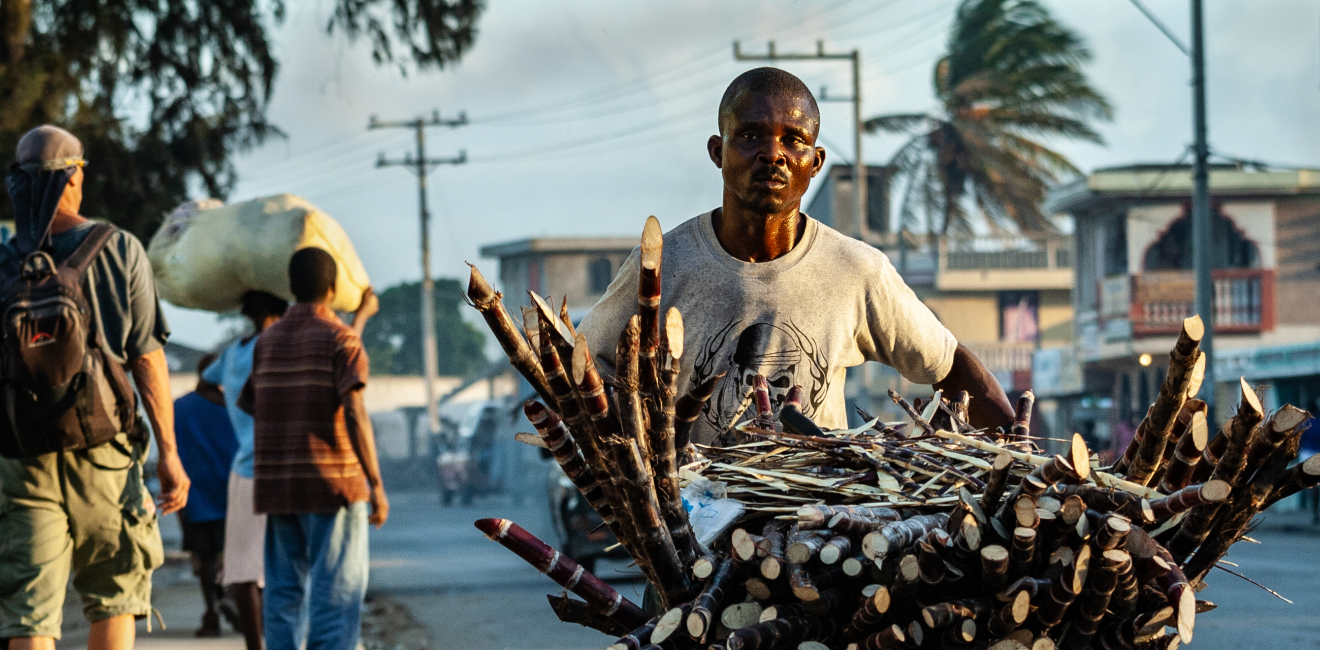
A blog of the Wilson Center
Haiti, one of the world’s poorest countries, was forced to pay France 112 million francs (approximately $560 million in today’s money) for recognition of its independence and sovereignty.
What do Americans think of when they hear the name “Haiti?” They may be aware that it has received more than its share of natural disasters over the years, from tornados to hurricanes to earthquakes (and more). They may have read some of the many stories of extraordinarily violent criminal gangs being in control of neighborhoods and communities. And all of this has probably led some to believe that the situation there is not only hopeless, but that the Haitian people somehow brought this upon themselves.
What very few Americans realize is that Haiti’s early post-colonial development was largely destroyed when the country was straddled with a crushing debt it was forced to take on by outside powers.
Haiti was once a prosperous French colony that, thanks largely to slave labor, produced huge profits and wealth for its masters. In 1823, just under two decades after Haitians formally declared its independence, France’s King Charles X sent a fleet of warships into Haitian waters with a demand that Haiti pay France 150 million francs in exchange for recognizing its sovereignty and in compensation for the loss of French profits derived from Haiti’s plantations. To put that into context, the United States only paid the equivalent of 15 million francs for the Louisiana Purchase 20 years earlier.
While the amount Haiti was to pay was eventually negotiated down to 90 million francs, a New York Times investigation concluded that Haiti likely ended up paying France 112 million francs (or approximately $560 million in modern US dollars). While it’s difficult to state with certainty what Haiti could have accomplished in economic development had it not been forced to pay its former occupier, a New York Times’ analysis reviewed and supported by 14 financial historians and economists calculated that these funds could conservatively have added $21 billion to Haiti’s modern economy.
Haiti made regular payments to France for 122 years under the terms of its arrangement with King Charles X… money that didn’t finance schools, infrastructure, and other types of economic and governance development.
Among those who ended up receiving some of the money that Haitian citizens put out—largely composed of former slaves and the descendants of slaves—were the Empress of Brazil, the son-in-law of Russian Emperor Nicholas I, Germany’s last imperial chancellor, and French General Gaston de Galliffet.
To get a sense of how Haiti’s forced payments did so much damage to its fledgling economy, Haiti’s very first payment to France was six times larger than the young country’s entire annual revenue. In order to be able to comply with its debt terms, the Haitian government took out high interest loans from a range of banks in France, but also banks in the US and other parts of Europe. This created a double debt: the original debt owed to France, and a growing debt owed to foreign lenders.
Several years ago, when I was visiting Haiti in my capacity as the administrator of the US Agency for International Development, I took a helicopter flight from Port au Prince to a nearby community. As we flew low over some of the country’s poorest neighborhoods—areas that looked like they were war-ravaged—I asked my pilot, “How do I describe what I’m seeing to people back home… people in the US?” He paused for a moment, and said, “At 500 feet, Haiti is a Caribbean Island.”
In other words, Haiti is in a beautiful part of the world, and it’s a country that could and should be a thriving tourist mecca. But it isn’t. And while there are many factors that have contributed to Haiti’s plight, the country’s early years, when former slaves were forced to pay their former masters, has to be one of those reasons… and one of the most shameful.
Innocent families in Haiti are still feeling the consequences.
This blog was researched and drafted with assistance from Chelsea Acheampong and Katherine Schauer.
Author


Latin America Program
The Wilson Center’s prestigious Latin America Program provides non-partisan expertise to a broad community of decision makers in the United States and Latin America on critical policy issues facing the Hemisphere. The Program provides insightful and actionable research for policymakers, private sector leaders, journalists, and public intellectuals in the United States and Latin America. To bridge the gap between scholarship and policy action, it fosters new inquiry, sponsors high-level public and private meetings among multiple stakeholders, and explores policy options to improve outcomes for citizens throughout the Americas. Drawing on the Wilson Center’s strength as the nation’s key non-partisan policy forum, the Program serves as a trusted source of analysis and a vital point of contact between the worlds of scholarship and action. Read more

Explore More in Stubborn Things
Browse Stubborn Things
Spying on Poachers

China and the Chocolate Factory

India: Economic Growth, Environmental Realities

